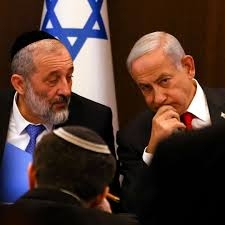Israeli Supreme Court Decision.
The court dismissed a regulation that was intended to restrict its power. Monday's decision, reprimanded by Head of the state Benjamin Israel-Hamas War Netanyahu and adulated by his adversaries, raised the possibility of reestablished disagreement as Israel takes up arms in Gaza.
The decision by Israel's top court sets up a potential protected emergency. This is what to be aware.
In a groundbreaking decision that could light an established emergency, Israel's High Court on Monday struck down a regulation passed by Top state leader Benjamin Netanyahu's traditional government that was intended to restrict the court's own powers, by a greater part of eight appointed authorities to seven.
The choice is probably going to revive what is happening that started a year prior over the public authority's legal redesign plan — which ignited mass fights that carried the country to a close to stop on occasion — even as Israel is at battle in Gaza.
The court, sitting with a full board of every one of the 15 of its judges without precedent for its set of experiences, dismissed a regulation passed by Parliament in July. The law banished decided from utilizing a specific legitimate norm to overrule choices made by government priests.
The court's choice messengers a likely standoff between the top legal power and the decision alliance, and could essentially reshape Israeli majority rules system, setting the force of the public authority in opposition to that of the court.
In a country that has one place of Parliament, no formal composed constitution and a generally stylized president, numerous protectors of Israel's liberal majority rules system view the High Court as the main rampart against government power.
This is what else to be aware:
Mr. Netanyahu's overseeing alliance, the most traditional and strictly moderate in Israel's set of experiences, has contended that the High Court has exceeded its position and undermined the desire of the citizens and the capability of the chosen government. They contend that the legitimate idea of "sensibility" — which the court utilized a year prior to strike down Mr. Netanyahu's arrangement as money clergyman of a political partner who had been sentenced for charge extortion — is poorly characterized and emotional.
Mr. Netanyahu's Likud party referred to the High Court's choice on Monday as "contrary to the country's longing for solidarity, particularly in a period of war." They hammered the court for administering on the issue when Israeli troopers are "battling and jeopardizing themselves in fight."
Kaplan Power, one of the extremist gatherings that coordinated fights against the legal change, commended the High Court's choice and approached all gatherings to submit to the decision. "Today, one section finished in the fight to safeguard a majority rules government — in a triumph for the residents of Israel," the gathering said in a proclamation.










